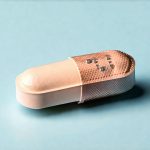The intricate relationship between hormonal fluctuations and urinary tract health is often overlooked in discussions surrounding birth control. While primarily known for preventing pregnancy, different types of contraception introduce varying levels of hormones into the body – estrogen, progestin, or both – which can have a ripple effect on immune function, vaginal microbiome balance, and ultimately, susceptibility to conditions like cystitis (inflammation of the bladder). Understanding these potential connections is crucial for individuals seeking informed choices about their reproductive health and proactive management of urinary well-being. It’s important to note that correlation doesn’t equal causation; many factors contribute to cystitis risk, and birth control is just one piece of a complex puzzle.
Cystitis isn’t simply a discomforting condition; it can significantly impact quality of life, causing pain, urgency, frequency, and even systemic symptoms in severe cases. The development of cystitis frequently involves bacterial infection – most commonly E. coli from the gastrointestinal tract – but hormonal changes can create an environment more conducive to these infections taking hold. This is where the potential link with birth control comes into play. We’ll explore how different methods, and the hormones they deliver, may influence this risk, while simultaneously emphasizing that individual responses vary greatly, and a comprehensive understanding requires consultation with a healthcare professional.
Types of Birth Control & Potential Cystitis Risk
The spectrum of birth control options is vast, ranging from barrier methods like condoms to hormonal therapies such as pills, patches, rings, injections, implants, and intrauterine devices (IUDs). Each method carries its own unique profile in terms of hormone delivery and potential side effects. Generally, hormonal birth control introduces estrogen and/or progestin into the body, which can impact the urinary tract in several ways. Estrogen, for instance, can alter the vaginal microbiome, potentially reducing beneficial bacteria that compete with harmful pathogens like E. coli. Progestins may affect bladder sensitivity and immune response. It’s crucial to remember that not everyone will experience these effects, but understanding the potential is vital for informed decision-making.
Combined hormonal contraceptives (CHCs) – pills, patches, and rings containing both estrogen and progestin – tend to have a more pronounced effect on hormone levels compared to progestin-only methods. While CHCs are highly effective at preventing pregnancy, their impact on the vaginal microbiome is often greater, potentially increasing the risk of bacterial imbalances. Progestin-only pills (POPs), injections (Depo-Provera), and hormonal IUDs deliver lower doses of hormones or just progestin, which may result in a less significant effect on urinary tract health for some individuals. However, even low-dose options can influence the immune system and vaginal flora, so it’s not a guarantee of protection against cystitis.
IUDs – both hormonal (containing levonorgestrel) and copper IUDs – present an interesting scenario. While the hormonal IUD delivers progestin locally to the uterus, studies haven’t consistently shown a strong link between its use and increased cystitis risk. Copper IUDs, which are hormone-free, generally don’t have a direct hormonal impact on the urinary tract; however, they can sometimes cause inflammation or irritation in the pelvic region, potentially increasing susceptibility to infection. The overall picture is nuanced, and individual responses vary significantly based on factors like pre-existing conditions, immune function, and lifestyle choices. It’s important to understand if do Iuds or birth control pills affect UTI frequency as part of your overall health assessment.
Hormonal Fluctuations & Immune Response
Hormonal birth control doesn’t just impact the vaginal microbiome; it also influences the immune system. Estrogen can suppress certain aspects of cellular immunity, potentially making it harder for the body to fight off infections. Progestins have a more complex effect, sometimes enhancing and sometimes suppressing immune function depending on the specific progestin type and dosage. This modulation of the immune response can create an environment where bacteria are more likely to colonize the urinary tract and cause infection.
- A weakened immune system means less effective defense against invading pathogens.
- Hormonal imbalances can disrupt the natural mechanisms that prevent bacterial adhesion to the bladder wall.
- Chronic inflammation, sometimes associated with hormonal birth control, can further compromise immune function.
It’s important to note that these effects are often subtle and don’t necessarily lead to cystitis in most individuals. However, for those who are already prone to urinary tract infections or have a compromised immune system, the impact of hormonal birth control could be more significant. Maintaining a strong immune system through proper nutrition, hydration, stress management, and regular exercise is crucial for minimizing this risk. Understanding how can hormonal birth control affect the bladder can help you make informed decisions about your health.
The Vaginal Microbiome & Birth Control
The vaginal microbiome plays a critical role in protecting against urinary tract infections. A healthy microbiome is dominated by Lactobacilli bacteria, which produce lactic acid to maintain an acidic environment that inhibits the growth of harmful pathogens like E. coli. Estrogen can influence the composition of the vaginal microbiome, potentially reducing Lactobacilli populations and creating a more favorable environment for infection. This effect is particularly pronounced with combined hormonal contraceptives (CHCs).
Progestin-only methods generally have a less dramatic impact on the vaginal microbiome, but they can still alter its balance to some extent. Factors like antibiotic use, douching, and sexual activity can also disrupt the vaginal microbiome, increasing the risk of cystitis. Maintaining a healthy vaginal microbiome through practices such as probiotic supplementation (specifically strains targeting vaginal health), avoiding harsh soaps and douches, and practicing safe sex is essential for minimizing this risk. Sometimes these imbalances can lead to other infections; do UTIs increase risk of yeast infections should be considered as well.
Lifestyle Factors & Proactive Management
While birth control may play a role in cystitis risk, lifestyle factors are equally important. Adequate hydration is crucial for flushing out the urinary tract and preventing bacterial colonization. Frequent urination, especially after sexual activity, can also help reduce the risk of infection. Avoiding irritating substances like caffeine, alcohol, and spicy foods may also be beneficial for individuals prone to cystitis.
- Hydration: Aim for at least eight glasses of water per day.
- Urination habits: Don’t hold urine for extended periods. Urinate after sexual activity.
- Dietary modifications: Limit caffeine, alcohol, and spicy foods if they trigger symptoms.
- Probiotics: Consider supplementing with probiotics specifically designed to support vaginal health (consult a healthcare professional before starting any new supplement).
For individuals experiencing recurrent cystitis, exploring preventative measures such as D-mannose supplementation or cranberry products may be helpful. However, it’s essential to discuss these options with a healthcare provider to determine if they are appropriate and safe for your individual circumstances. Ultimately, proactive management of urinary health is key to minimizing the risk of cystitis, regardless of birth control choices.





















